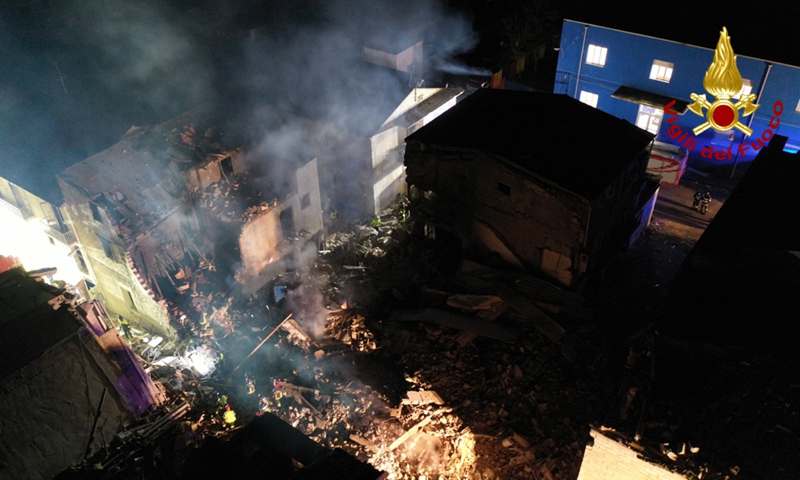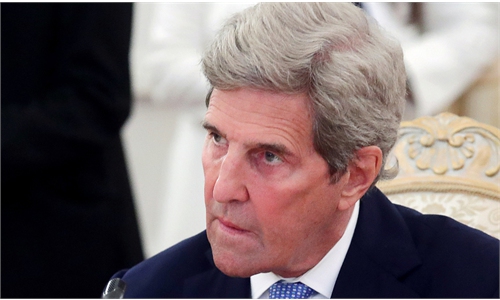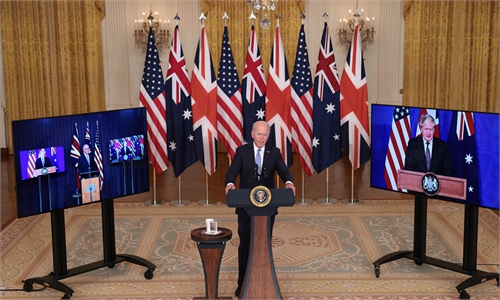Energy sector methane emissions underreported: IEA global tracker

Photo taken with a drone shows Italian firefighters and rescuers working at a methane gas explosion site in the Sicilian town of Ravanusa, Italy, Dec. 11, 2021.Photo:Xinhua
The energy sector's overall emissions of methane are massively underreported, the International Energy Agency (IEA) said Tuesday as it promoted cuts to the most potent greenhouse gas as a quick way to make a major impact on global warming.The IEA said its latest annual Global Methane Tracker had found that emissions by the energy sector were about 70 percent higher than official government figures.
It said this showed the need for greater transparency as well as "stronger policy action to drive down emissions of this potent greenhouse gas," responsible for some 30 percent of the rise in global temperatures since the Industrial Revolution.
While methane dissipates faster than carbon dioxide, it has a much more powerful warming effect in the atmosphere.
Humans are responsible for about 60 percent of methane emissions, and cutting these could have a quick and major impact.
"Cutting global methane emissions from human activities by 30 percent by the end of this decade would have the same effect on global warming by 2050 as shifting the entire transport sector to net zero CO2 emissions," IEA chief Fatih Birol said.
The tracker, which for the first time includes country-by-country emissions from coal mines and bioenergy, showed that methane emissions from the energy sector grew by just under 5 percent in 2021.
The IEA logged "significant emissions" in Texas and parts of Central Asia, with Turkmenistan alone responsible for one-third of "large emissions events" logged by satellites in 2021.
The energy industry is a major source of methane emissions from leaks and operations. Many older oil wells flare off unwanted methane as building infrastructure may have originally cost too much.
But with gas prices soaring, the costs of investments to capture methane and reduce leaks will quickly pay for itself, and would help reduce tight supplies.
AFP



